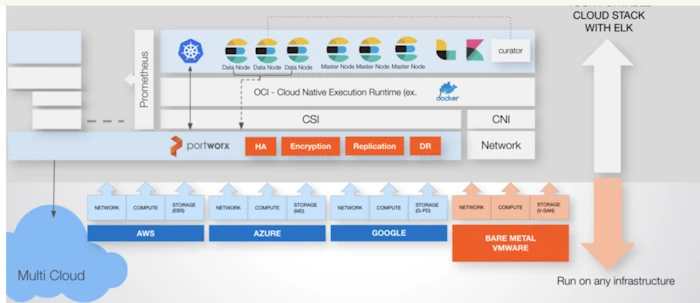The Expanding Role of ElasticSearch in Efficient Data Analysis
Key Takeaways
- Grasping the essential features of ElasticSearch and their benefits in data management.
- Implementing scalable search solutions to manage and analyze the influx of big data.
- Integrating ElasticSearch across industry verticals for enhanced data handling and analytics.
- Following best practices to optimize ElasticSearch deployment and real-time analytics.
- Comparing ElasticSearch with other search technologies and exploring future advancements.
- Adopting ElasticSearch for comprehensive business intelligence and decision-making.
Understanding ElasticSearch and Its Core Functionalities

Unlocking the power of big data is essential for modern businesses aiming to derive actionable insights and maintain a competitive edge. Among the myriad of tools available to manage and analyze vast datasets, ElasticSearch stands out as a robust, open-source search and analytics engine. It can seamlessly process an extensive range of scenarios, from log analytics to sophisticated searches. In particular, the integration of Elasticsearch on Kubernetes showcases the synergy between scalable, open-source search engines and container orchestration to bring data analysis to the next level. At its heart, ElasticSearch facilitates realtime searching and analytics of data. Ideal for scenarios requiring complex searches, it allows for fast and reliable access to the needed information. Whether it’s a simple text query or a complicated search involving multiple parameters, ElasticSearch’s capabilities ensure that users receive precise results promptly.
The Importance of Scalable Search Solutions in Big Data
The exponential growth of big data has brought forth an array of challenges, including the storage, management, and analysis of information. ElasticSearch addresses these challenges head-on, offering scalable search solutions that can adeptly handle the mass amounts of data generated by contemporary enterprises. Notably, its ability to provide quick and accurate search results across vast datasets makes it an invaluable asset for organizations pushing the frontiers of considerable data utilization.
ElasticSearch: Beyond the Basics
ElasticSearch is renowned for its straightforward search capabilities, yet it’s the advanced features that garner attention from data-driven businesses. Features such as real-time indexing, distributed nature, and full-text search capabilities make it an engine that goes beyond basic requirements. Its flexibility in handling unstructured data and support for complex queries allows businesses to explore their data in ways previously not possible, leading to emergent insights and the discovery of hidden patterns that could influence pivotal business decisions.
Implementing ElasticSearch in Various Industries
Different industries benefit significantly from implementing ElasticSearch due to its versatile and powerful search capabilities. In the healthcare sector, fast access to patient data can lead to better diagnostic accuracy and timely treatments. Retailers use ElasticSearch to personalize customer experiences and product recommendations by analyzing buying patterns and preferences. Its ability to integrate with existing systems and handle data from diverse sources speaks volumes about its flexibility and ease of use across various sectors, allowing for more nuanced and data-driven strategies.
Best Practices When Deploying ElasticSearch
Effective deployment of ElasticSearch is contingent upon following industry best practices. This includes a comprehensive understanding of the business requirements, meticulous planning of the architecture for scalability, and prioritization of data security. One must consider the volume of data to be managed, expected query load, and the complexity of the analytics to determine the most suitable hardware and configuration settings. Additionally, ongoing maintenance in terms of monitoring and fine-tuning the ElasticSearch deployment is crucial to sustain its performance and reliability over time.
ElasticSearch and Real-time Analytics
ElasticSearch excels in delivering real-time analytics, providing businesses with immediate insights into their operational and transactional data. This facet of ElasticSearch is particularly advantageous for industries where rapid response to data is essential, such as financial services for fraud detection or e-commerce platforms for inventory management. Having the capability to analyze and act upon data in real-time changes the way organizations respond to market dynamics, ensuring they are proactive rather than reactive in their strategies.
ElasticSearch vs. Other Search Technologies
When compared with other search technologies, ElasticSearch often stands out for its flexibility, scalability, and strong community support. While other platforms might excel in specific niches or provide proprietary features, the consensus among many enterprise users leans in favor of ElasticSearch when a balance of features and open-source flexibility is sought. Deciding on the right technology requires a careful assessment of each solution’s strengths and how they align with an organization’s unique data needs and operational objectives.
ElasticSearch Integration with Cloud Services
The emergence of cloud computing has revolutionized how businesses deploy and manage software like ElasticSearch. Cloud platforms complement the distributed nature of ElasticSearch, paving the way for scalable, flexible, and cost-efficient data analysis solutions. Leveraging cloud services allows for automatic scaling, resilient storage, and simplified management processes, freeing businesses from the complexities of on-premise deployments.
The Future Outlook for ElasticSearch
The horizon for ElasticSearch appears bright as it continues to evolve in alignment with emerging technological trends. The integration of artificial intelligence (AI), machine learning, and improved natural language processing tools are expected to propel ElasticSearch even further to the forefront of search and analytics platforms. Keeping a pulse on these advancements is integral for organizations that intend to leverage the latest capabilities of ElasticSearch to maintain a leading position in their respective markets.
Leveraging ElasticSearch for Business Intelligence
Using ElasticSearch for more than just search; it transforms into a comprehensive tool for business intelligence. It enables organizations to sift through their data landscapes to extract valuable insights that inform strategic decision-making. The invaluable intelligence gathered can empower businesses, streamlining processes and ensuring that decisions are backed by evidence. Integrating ElasticSearch into business intelligence frameworks can truly harness the potential of big data, making it a central pillar for companies prioritizing data-centric decisions in the modern economy.







